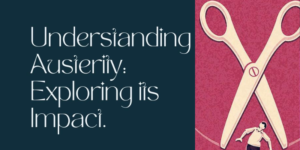The study of leadership is a rich and multifaceted field that encompasses a wide range of theories, styles, and practical applications. As societies, organisations, and institutions evolve, so too does the understanding of what makes leadership effective in different contexts. Scholars have examined leadership through psychological, sociological, cultural, and organisational lenses, creating a body of knowledge that is both broad and dynamic. This article provides an expanded overview of key topics within the field of leadership, with reference to textbooks, journal articles, and reputable sources.
1.0 Leadership Theories and Models
Leadership theories provide frameworks for understanding how individuals influence others. Among the most widely studied are transformational leadership, which inspires and motivates followers towards shared goals, and transactional leadership, which is based on rewards and punishments (Northouse, 2018). Servant leadership places emphasis on serving followers, promoting collaboration and empathy (Greenleaf, 1977). Participative leadership encourages involvement in decision-making, while situational leadership (Hersey & Blanchard, 1988) stresses adapting style according to the context. These theories highlight that leadership effectiveness depends on both the leader’s traits and the surrounding environment.
2.0 Leadership Styles
Leadership styles refer to characteristic approaches leaders adopt when guiding teams. Autocratic leadership centralises decision-making, which can be efficient but may stifle creativity (Grint, 2000). Conversely, democratic leadership values collaboration and input, often improving morale and innovation. Laissez-faire leadership provides autonomy to followers but risks lack of direction, while charismatic leadership relies on the leader’s personal magnetism and vision. Research suggests that no single style is universally effective; the most successful leaders adopt a flexible approach depending on circumstances.
3.0 Emotional Intelligence
Emotional intelligence (EI) has become a central theme in leadership research. Goleman (1995) emphasised that EI comprises self-awareness, self-regulation, motivation, empathy, and social skills, all of which enable leaders to build trust and handle interpersonal dynamics effectively. Leaders with high EI tend to inspire loyalty and manage conflicts more productively. For example, Mayer, Salovey and Caruso (2008) argue that EI helps leaders navigate uncertainty and stress, which is critical in volatile environments.
4.0 Ethical Leadership and Corporate Social Responsibility
Modern organisations expect leaders not only to be effective but also ethical. Ethical leadership involves fairness, integrity, and role-modelling appropriate behaviour (Brown & Treviño, 2006). It is closely tied to corporate social responsibility (CSR), where leaders align organisational goals with societal good. Carroll’s (1991) CSR pyramid emphasises economic, legal, ethical, and philanthropic responsibilities. Ethical leaders foster trust and enhance organisational reputation, ultimately contributing to long-term success.
5.0 Cultural and Global Leadership
In an era of globalisation, cultural and global leadership has gained importance. The GLOBE study (House et al., 2004) found that leadership preferences vary across cultures, highlighting the need for cross-cultural awareness. For example, collectivist cultures may value consensus, while individualist cultures favour assertiveness. Leaders must also navigate diversity and inclusion, ensuring equitable practices within multicultural teams. Global leaders require adaptability, intercultural communication skills, and sensitivity to local norms.
6.0 Leadership Development
Developing effective leaders is a strategic priority for organisations. Leadership development involves structured programmes such as mentoring, coaching, training, and experiential learning (Avolio & Hannah, 2008). Day et al. (2014) stress that leadership development is not limited to executives but extends across organisational levels. Cultivating leadership potential ensures continuity, resilience, and long-term organisational growth.
7.0 Organisational Leadership
Organisational leadership focuses on shaping culture, managing change, and driving performance. Yukl (2013) emphasises that leaders influence not only individuals but also systems, processes, and values within organisations. Strong organisational leadership is critical during change management, where resistance must be overcome and vision effectively communicated. Leaders act as cultural architects, embedding values that align with organisational strategy.
8.0 Women in Leadership
The role of women in leadership remains an area of significant study. Despite progress, gender disparities persist in senior positions. Eagly and Carli (2007) introduced the labyrinth metaphor, describing the complex barriers women face in reaching leadership roles, including stereotypes and structural inequalities. Research shows that diverse leadership teams foster innovation and improved decision-making (Catalyst, 2020). Supporting women in leadership requires mentorship, inclusive policies, and challenging gender biases.
9.0 Leadership in Different Contexts
Leadership manifests differently across contexts. Educational leadership focuses on improving teaching and learning outcomes (Leithwood & Jantzi, 2005). Military leadership emphasises discipline, hierarchy, and resilience. Political leadership involves navigating public opinion, policy, and governance. In the non-profit sector, leaders often rely on intrinsic motivation and volunteer engagement (Bolden, 2011). Each context demands unique skills while sharing universal principles such as vision and influence.
10.0 Innovation and Leadership
Innovation is vital in today’s competitive landscape, and leaders play a key role in fostering it. Amabile and Khaire (2008) argue that leaders must create psychological safety, encourage experimentation, and tolerate failure. Transformational leadership is particularly linked to creativity, as it inspires followers to think beyond conventional boundaries. Leaders who champion innovation can drive organisational adaptation and long-term sustainability.
11.0 Crisis Leadership
The increasing frequency of crises—ranging from economic downturns to pandemics—has made crisis leadership essential. Boin et al. (2013) highlight that effective crisis leaders demonstrate decisiveness, clear communication, and resilience under pressure. They must manage uncertainty while maintaining trust and morale. Transparent communication and empathy are critical in ensuring collective recovery and organisational stability during crises.
12.0 Team Leadership
Team leadership involves guiding groups towards collective goals. Hackman and Wageman (2005) proposed that effective team leaders focus on team development stages, conflict resolution, and collaboration. Leaders foster cohesion by clarifying roles, encouraging open communication, and addressing conflicts constructively. In high-performance teams, leadership often shifts dynamically among members, reinforcing the concept of distributed leadership (Bolden, 2011).
The study of leadership is an evolving discipline, constantly shaped by research, societal changes, and technological advancements. From classical theories to contemporary focuses on emotional intelligence, ethics, diversity, and globalisation, leadership scholarship continues to refine understanding of how leaders influence individuals, teams, and organisations. Effective leadership is not static but context-dependent, requiring adaptability, integrity, and vision. As organisations navigate an increasingly complex world, leadership remains one of the most critical determinants of success.
References
Amabile, T. M. & Khaire, M. (2008) ‘Creativity and the role of the leader’, Harvard Business Review, 86(10), pp. 100–109.
Avolio, B. J. & Hannah, S. T. (2008) ‘Developmental readiness: Accelerating leader development’, Consulting Psychology Journal: Practice and Research, 60(4), pp. 331–347.
Bolden, R. (2011) ‘Distributed leadership in organizations: A review of theory and research’, International Journal of Management Reviews, 13(3), pp. 251–269.
Boin, A., Hart, P. T., Stern, E. & Sundelius, B. (2013) The politics of crisis management: Public leadership under pressure. Cambridge: Cambridge University Press.
Brown, M. E. & Treviño, L. K. (2006) ‘Ethical leadership: A review and future directions’, The Leadership Quarterly, 17(6), pp. 595–616.
Carroll, A. B. (1991) ‘The pyramid of corporate social responsibility: Toward the moral management of organizational stakeholders’, Business Horizons, 34(4), pp. 39–48.
Catalyst (2020) Why diversity and inclusion matter. Available at: https://www.catalyst.org/research/why-diversity-and-inclusion-matter/ (Accessed: 25 August 2025).
Day, D. V., Fleenor, J. W., Atwater, L. E., Sturm, R. E. & McKee, R. A. (2014) ‘Advances in leader and leadership development: A review of 25 years of research and theory’, The Leadership Quarterly, 25(1), pp. 63–82.
Eagly, A. H. & Carli, L. L. (2007) Through the labyrinth: The truth about how women become leaders. Boston: Harvard Business Review Press.
Goleman, D. (1995) Emotional intelligence: Why it can matter more than IQ. New York: Bantam Books.
Grint, K. (2000) Leadership: Classical, contemporary, and critical approaches. Oxford: Oxford University Press.
Hackman, J. R. & Wageman, R. (2005) ‘A theory of team coaching’, Academy of Management Review, 30(2), pp. 269–287.
Hersey, P. & Blanchard, K. H. (1988) Management of organisational behaviour: Utilizing human resources. Englewood Cliffs: Prentice Hall.
House, R. J., Hanges, P. J., Javidan, M., Dorfman, P. W. & Gupta, V. (2004) Culture, leadership, and organizations: The GLOBE study of 62 societies. Thousand Oaks, CA: Sage Publications.
Leithwood, K. & Jantzi, D. (2005) ‘A review of transformational school leadership research, 1996–2005’, Leadership and Policy in Schools, 4(3), pp. 177–199.
Mayer, J. D., Salovey, P. & Caruso, D. R. (2008) Emotional intelligence: New ability or eclectic traits? American Psychologist, 63(6), pp. 503–517.
Northouse, P. G. (2018) Leadership: Theory and practice. 8th edn. Thousand Oaks, CA: Sage Publications.
Yukl, G. A. (2013) Leadership in organizations. 8th edn. Harlow: Pearson.









